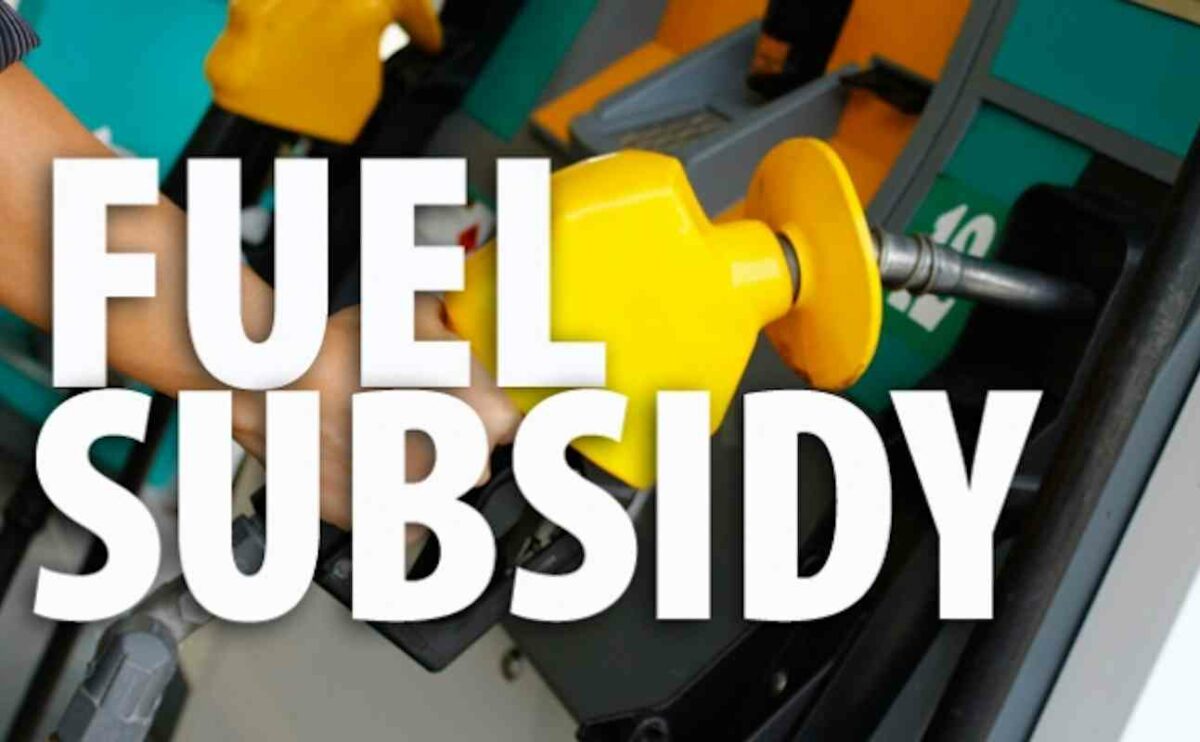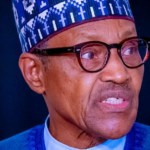By Nasir Aminu
Last week, the Group Managing Director (GMD) of the Nigerian National Petroleum Company (NNPC) announced that fuel subsidies would end by February 2022. He added that the pump price of fuel would range between N320 and N340 per litre – more than twice the current price.
Nigeria has been subsidising fuel since the 1970s to ensure Nigerians buy petroleum products below the global price. Like every government intervention, fuel subsidy has its cost and benefits. The principle behind oil subsidies is to minimise the impact of ‘rising global oil prices’ on Nigerians. Therefore, buying oil products at a high price is the main problem and fuel subsidy is used to solve it. That is why fuel pump prices have remained unchanged despite the rise in world oil prices by about 50 per cent in the last few months.
However, the old solution has now grown to become a problem for the economy. The GMD of NNPC said the nation is paying around N120 billion per month for fuel subsidies, which is weighing down the country’s budget. Of course, the ongoing pressure to eliminate fuel subsidies has been around since the 1980s. Still, certain factors keep preventing it from happening.
To cushion the potential economic impact of fuel subsidy removal, the finance minister announced a plan to start giving cash handouts to a group of Nigerians from July 2022. The minister estimated that about 40 million poor citizens would get a monthly consumption allowance of N5,000 for 12 months – N2.4 trillion a year. The period of dishing out the money will coincide with the 2023 elections when at least 30 state governors and a successor to President Buhari will be voted into office. Indeed, Nigerians are questioning the timing of this policy, but most are silent about it.
Undoubtedly, fuel subsidies bite deeply into the nation’s budget, and cash transfers can help the poor. On the other hand, it is unreasonable to think that replacing a subsidy with another subsidy can solve the problem. However, understanding the removal cost can make the policymakers focus on solving the problems at their root sources instead of dealing with the results of the issues.
First, there is an issue of bending the Fiscal Responsibility Act (FRA) 2007. The 2022 budget shows a net borrowing of about N6.25 trillion, approximately 3.39 per cent of the GDP, which is slightly above the three per cent ceiling set by the FRA. It is logical to assume the N5,000 is included. Borrowing to finance the consumption of 40 million adults goes against the FRA principle as the law only permits borrowing for capital expenditure and human development. The estimated N2.4 trillion in the 2022 budget means that for every N10 borrowed, N4 will be given out to the poor during the election season.
Secondly, it is always important to find the devil in the details. This is achieved by conducting independent macroeconomic projections, which helps to elaborate government policies. Removal of fuel subsidies comes with consequences. When Nigerians begin to bear the high cost of fuel, businesses with petrol generators and vehicles will have to increase their prices in proportion to the rise in fuel cost.
As the cost of production increases, supplying the same amount of goods and services will require more money. Businesses that borrow from commercial banks will have to be reassessed under the new economic situation, making it difficult to survive. Interest rates will rise as demand for loans will increase. The cost of doing business in the country will increase, which will affect foreign investment. Foreign exchange will be scarce. Companies that cannot cope will eventually close down, which will increase the unemployment level.
In short, the effects of fuel subsidy removal will be felt across the economy, not just by the poor. The average Nigerian will have to deal with higher inflation while salaries remain the same. According to estimates, if the cost of goods and services increases in proportion to the 100 per cent increase in fuel pump price, the N5000 handout will be equal to half of its value.
The government should understand that we will all suffer from the stench when the fish begins to rot from the head. There are several documented analyses and predictions of subsidy removal which have not changed much. Still, the number of things the government does not understand could fill a library they probably would not read.
Thirdly, since the fuel subsidy removal is to become a law, it is essential to look at relevant alternatives to the N5000 policy response. Surprisingly, the minister is not making plans to repair existing refineries or build modular refineries to cushion the impact of the subsidy removal. Modular refineries can be constructed at different locations of the country to refine 20,000 barrels per day. It will take about 15 to 18 months from starting the building project to refining the first barrel. An estimate shows that one month’s fuel subsidy will build 10 modular refineries. Doing so will keep the fuel pump prices lower than the current value and even provide millions of jobs, all things being equal.
It is also surprising that the minister did not plan to fund the small and medium businesses (SMEs) in the country. According to the National Bureau of Statistics (NBS), Nigeria’s SMEs contribute nearly 50 per cent of the country’s GDP. They also account for over 80 per cent of employment in the country. Investing a percentage of the allocated N2.4 trillion in SMEs could teach technical and entrepreneurial skills and help develop managerial competencies for the private and public sectors. These can reduce the worrying unemployment level and expand the economy in the short, medium, and long term.
The minister claimed the government would work with the World Bank to ensure that the cash payments go to the rightful recipients. It is surprising to find the World Bank supporting such a questionable policy response. The plan is to use Biometric Verification Numbers (BVN), National Identity Numbers (NIN) and bank account numbers to reach these groups of individuals. It is tough to argue against this efficient method.
However, the critical challenge is that the group of poor Nigerians that the Minister of Finance aims to dole out N5000 for 12 months is not captured in the country’s database. According to various data sources, only about 48 million Nigerians have been issued the BVN and 65 million with NIN. The worrying figure shows that about 40 million adults do not have a bank account. The World Bank also backs the report on the latter. These are the people who really need the money. If we are to follow the minister’s method of transfer, then they are bound to miss out.
These challenges show that the government can’t efficiently dole out N5,000 to those who need it, and I don’t doubt they already know that. The policy is cleverly designed to trick Nigerians to vote for the government’s continuity in 2023 while the money goes elsewhere. It is that mythical promise that never gets delivered, and we have all been there before.
Before I get misunderstood, I totally support dishing out cash to the poor, but not by a process that leads to corruption.
Dr Nasir Aminu teaches at Cardiff Metropolitan University

 Join Daily Trust WhatsApp Community For Quick Access To News and Happenings Around You.
Join Daily Trust WhatsApp Community For Quick Access To News and Happenings Around You.


